Most people are content to plod along with their routine, going to work at 9 and getting home at 5 (or thereabouts), and then doing it all over again the next day. But for some, the idea of moonlighting as a freelancer is intriguing.
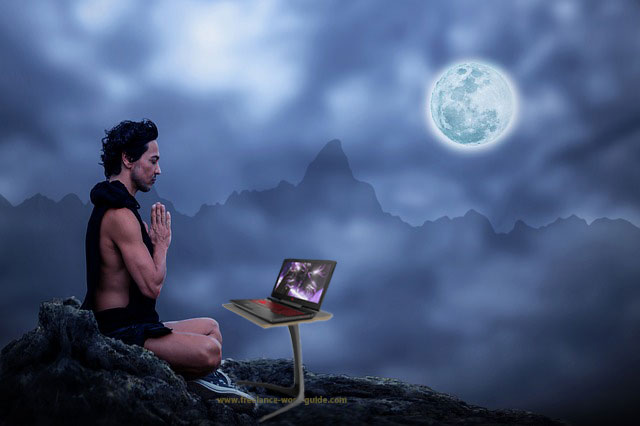
Working in the evenings or at the weekend outside of your regular working hours provides you with an opportunity to earn extra income while at the same time, honing latent skills that would otherwise go rusty. It’s an opportunity for you to strike out and test the waters yourself, without having to commit fully.
The freelance lifestyle is fully amenable to moonlighting. The very nature of the work often means that it’s something that you can do for a couple of hours in the evening without much hassle. Most of the contracts you’ll do will be flexible, providing you with opportunities to work when it suits you, so long as you’re not actually at work.
If you’re on the fence considering whether you should start moonlighting as a freelancer, check out these ten reasons that you should.
1. Strike Out And Make Life Work For You

It’s easy for people to get into a groove with a regular job. You follow the same pattern day after day, and little changes. You have the odd promotion here, a development there, but the basic building blocks of your life remain unchanged.
You’re forever longing for somebody else in your organization to recognize your talent and lift you up by your coattails to a higher level. It’s a waiting game.
Not so with freelancing. As somebody working independently, what happens in your life is fundamentally up to you
Suddenly, you gain enormous control over your destiny and can make decisions on your terms. You don’t have to ask your boss’s permission to grab a highly lucrative client – you just go and do it.
Freelancers experience explosions in their success in ways that most employees don’t. And what’s more, it’s entirely their call. As a freelancer, you never have to take on work you don’t want.
2. Diversify Your Employment Risk

If you’ve ever invested any money in the stock market, you’ll know all about the concept of diversification. It’s all about buying lots of different stocks to slash your risk: some will go down, others will go up, but your entire holdings should grow gradually.
Moonlighting is a great idea because it has the same effect on your sources of income. When you think about it, most people put all their eggs in one basket. They go to a single employer in the hope that they will continue to provide them with an income in the future.
But on closer inspection, this is a little strange: nobody would invest all their money in a single stock, so why do people do the equivalent with their work? It doesn’t make sense. The rational thing to do is to have many jobs: if one fails, you can fall back on the other.
3. Acquire New Skills You Can’t Get On The Job

Being a freelancer fundamentally changes your outlook on work. Work isn’t something that comes to you as it does in your average 9 to 5 – you must go to it.
As a freelancer, you’re likely to gain three distinct new skills we will discuss below – skills that you’ll never get in your regular job.
Build your technical repertoire. The first set of skills you’ll generate is job-based. Many employers try to shoehorn their workers into doing specific roles.
You must follow and template and stay within your job description. If you don’t, you’ll wind up stepping on somebody else’s toes, and that can create all kinds of nasty politics.
Independent freelancers have no such trouble. Instead, going deep with a skill is the done thing. In other words, you’re free to explore your technical expertise to your heart’s content without creating a scene. It’s what your clients want.
Improve your productivity. When you become a freelancer, you soon realize that there’s no such thing as a free lunch. How much you focus on your work is directly proportional to your income. The better your focus, the more you earn.
With freelancing by moonlight, you become more disciplined. You concentrate on the task in hand and learn how not to get distracted by family, friends, and entertainment in the evenings. You become a master of your time and eke out every time-saving technique available.
Closings sales. Unless you’re a sales rep in your day job, you probably don’t close a lot of sales, if any. Instead, you do your bit in your company, and let somebody else get on with the business of selling to clients.
As a freelancer, however, it’s your job to sell. You must do it. There are no ways around it. What’s more, this is a good thing: you learn all kinds of techniques, particularly negotiation. You see what people want from your services, and then you act on it. It requires a great deal of empathy.
4. You Can Feel Like A Boss
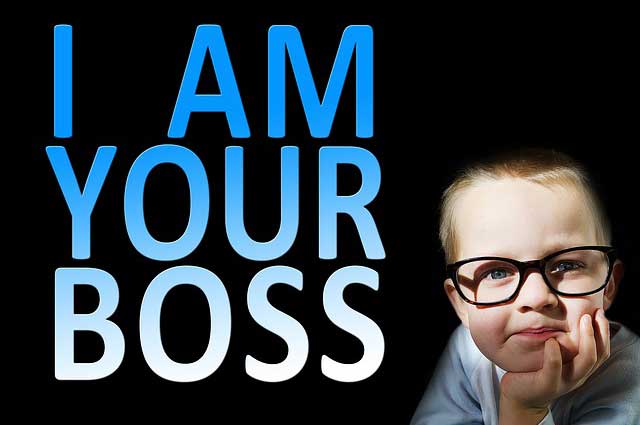
People who work for large organizations can never truly feel like a boss. Even if you work your way to the top, you still must deal with the board and shareholders. You never achieve genuine autonomy to make decisions on your terms.
The same is not true when you’re a freelancer. Freelancers really can so “no” to work and get away with it. The word “free” in freelancer is alive and well.
Saying no might be a good thing. By saying no to some clients, you create an environment in which you focus only on the work that you want or that which pays you the most money. Saying no can free up time for you to find clients who will utilize your skills to the full.
5. Leave Your Job Without Going To Zero
One of the reasons why employers can treat you so terribly is that they know that the alternative for most people is even worse. Most 9 to 5 workers would prefer to suffer the indignity of a bullying boss than wake up the next day without a job or income. Being destitute is not fun.
But, as we said before, being a freelancer changes the dynamic. Suddenly, you have a secondary income, providing you with a backstop should everything go wrong in your day job.
Think about the following situation. Let’s say that your boss isn’t just unpleasant but is also asking you to do something you believe is unethical
If you’re moonlighting, you feel more comfortable about saying no to whatever it is that your boss wants you to do. You know that even if you do get fired, you still have a sizeable income you can fall back on.
Moonlighting as a freelancer means that you’re less likely to compromise on your ethics and more able to push back against anything you don’t agree with at work. You have way more freedom.
6. Increase Your Income By 20 To 30 Percent

Do you ever wish that you could get just 20 or 30 percent more in your pay packet every month? Well, with freelancing by moonlight, you can.
Let’s face it – the average job doesn’t pay enough. Sure, it covers the bills, but you don’t live to pay the mortgage and the electricity – you want money left over for the stuff that’s important to you, whatever that is.
If you put in five to ten hours of freelance work per week, you can usually boost your income by anywhere from 15 to 40 percent. If you do something particularly lucrative on the side, you could increase your revenue by as much as 50 percent for as little as ten hours of work – or two hours per weekday evening.
While it’s a pain having to give up your evenings, the rewards can be extraordinary. Plus, you feel like you’ve really achieved something. Going to work and then moonlighting as a freelancer isn’t something that the average person can do. It takes a special kind of drive and commitment to make it happen.
7. You Enhance Your Negotiating Position At Work
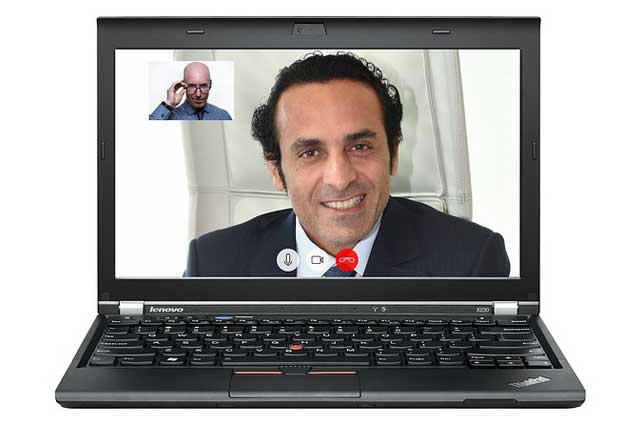
If you go and read articles on career blogs on how to get a promotion, most of them will talk about how the average person lacks the confidence to ask for a raise. It’s presumptuous and insulting. It’s not a lack of bravery that prevents people from asking for a raise; it’s a lack of leverage.
Let’s say that you’ve just started working on your own terms as a freelancer. To your surprise, you find out that you can earn around 30 percent more per hour just doing your freelance role than you can in your regular 9 to 5.
That’s interesting! What it’s telling you is that the market values what you do 30 percent more than your employer is willing to pay – vital information.
When you think about it, that fundamentally changes the negotiation dynamic. For the first time, you can go into a pay negotiation with your employer and walk away if you don’t get the answer you want. You don’t have to compromise. You finally have leverage.
You’ll be amazed at just what a difference having leverage makes. If your employer is getting value from you that they’re not paying for, then they have no choice but to boost your pay. They won’t want to let you go.
8. You Decide Your Income
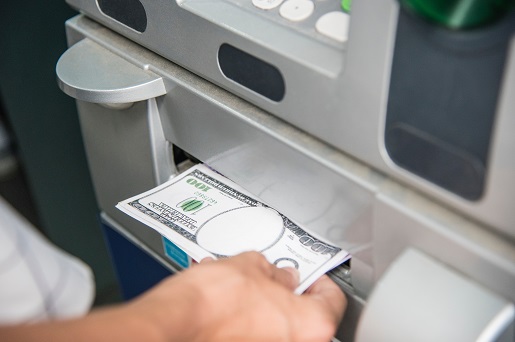
The horrible thing about the 9 to 5 is that you’re trapped in a kind of financial purgatory. You may want to earn more money, but it’s always up to somebody else how much you get paid.
You can’t start early in the morning and leave late at night and get paid more: your salary is your salary – an unchanging feature of your life.
Freelancing is different. While income can be more variable, you decide precisely how much you work and what you earn. If you want to go on a lavish holiday or save up for a more expensive car, freelancing lets you do that.
You put in the long hours and the weekends and before long, you have the things that you want. It’s a way of working that you don’t get with your regular 9 to 5 existence.
9. You Get Noticed

Getting noticed in your work can be a challenge. There are potentially hundreds of people all vying for the attention of the same small group of managers, executives, and bosses. Most are ambitious and want promotions, and you must fight them every step of the way. It’s a nightmare.
The freelance world is just as competitive but in a different way. There’s always going to be somebody out there who’s better at what you do than you are, but that’s okay. Your job isn’t to be the best, but to attain the highest exposure.
Today’s digital landscape is dominated by marketing channels which enable you to display your work everywhere. You’re free to show off what you do and distribute it to the world. If it’s valuable, people will come to you and pay you for it.
Suddenly, you have access to a massive, global audience. You don’t have to fight with your colleagues for the attention of one or two bosses.
10. You Channel Your Creative Energy

This final reason for moonlighting as a freelancer is arguably the most important. If you’re sick and tired of the drudgery of the 9 to 5, freelancing is a great outlet.
Most freelance work is surprisingly creative. Web designers must come up with unique and exciting websites. Writers must create content for blogs, news sites, and journals. Creative designers must create new artwork. Heck, even freelancing as a tutor has its artistic elements.
Thus, freelancing by moonlight can make you feel happier about your work. You get to do something that not only pays well but that you can enjoy too.
We have a PDF downloadable book called 20 Critical Steps to Moonlighting as a Freelancer . You can read more about Moonlighting as a Freelancer by clicking on the icon below:.
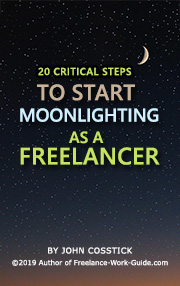
$ 5.00
Subscribe to Our Freelancer Newsletter and Receive 13 Free Listicles
These Listicles explain important information you need to know about successfully working from home.
Enter your information below and I’ll instantly send you your Exclusive Member’s Area.
It’s password protected and available to our valued subscribers only.
You’ll gain access to 13 exclusive Listicle articles that teach you vital information for becoming a successful work-from-home freelancer.
Learn Tips Such As:
- How to negotiate as a freelancer
- Important office design tips
- Questions to ask your retirement planner
- How to become a paid social media manager
- 11 solid tips on how to decide on your freelancer rates
- Questions to ask your health insurance adviser
- And so much more!
Want to know more than click here.















